Search Images
Browse Content (p. 1451)
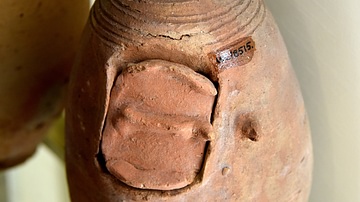
Image
Lamp From Diopolis Parva
This is a redware pottery lamp which was done in the form of a granary with a separate door. It has a red slip on the door and around. From Diopolis Parva, Egypt. 2nd Intermediate Period, 1650-1550 BCE. The Petrie Museum of Egyptian Archaeology...
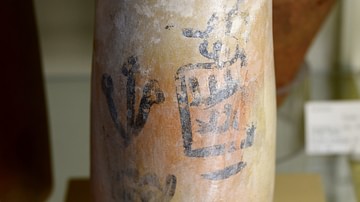
Image
Jar with Signs of Early Egyptian kings
This is a cylinder pottery jar (Type 50 B, pinkware). The name of King KA (and contents) was brushed on the jar using a black ink. King KA ruled just before the 1st Dynasty in Egypt. In general, few vessels from this period bore the name...
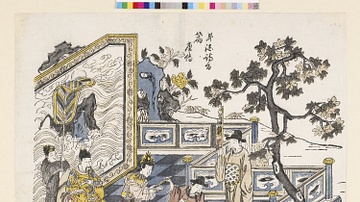
Image
Li Po Writing Poetry
17th-century, woodcut recreation of Li Po writing 100 verses while drinking a quart of wine seated on the veranda with a group of men.

Image
Li Po's Calligraphy
"Going Up to Sun Terrace", calligraphy scroll by the Tang Dynasty poet Li Bai, the only surviving example of Li Po's own calligraphy, is now housed at the Palace Museum in Beijing, China
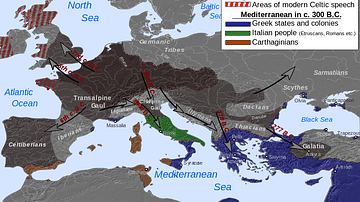
Image
Map of Celtic Expansion - 6th-3rd century BCE
A map showing the various campagins of Celtic tribes between the 6th and 3rd centuries BCE.

Image
Gallic Warriors
An artist's impression of how Gallic warriors may have looked in battle.

Image
Gallic Victory
An artist's impression of Gallic warriors celebrating victory.
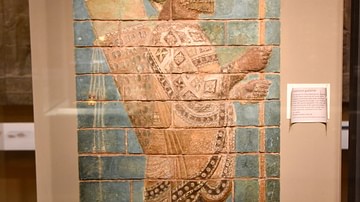
Image
Glazed Brick Guardsman from Susa, Iran
This was part of a frieze depicting rows of guards. The vivid colors show how the carved stone sculptures would have looked when they were painted. The guards were thought to be members of the 10,000 special royal guards. They were said to...
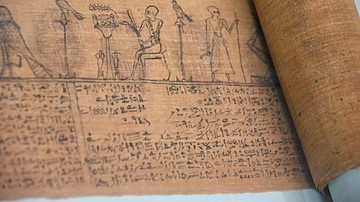
Image
Hieratic Book of the Dead of Padimin
Hieratic Book of the Dead of Padimin written on linen; mummy wrapping. From Akhmim, Egypt. Late Period, after 664 BCE. (The British Museum, London)

Image
Mummy of a Young Bull
A mummified bullock, wrapped in linen (with geometric pattern on the chest). There false eyes. From Thebes, Egypt. Roman Period, after 30 BCE. (The British Museum, London)